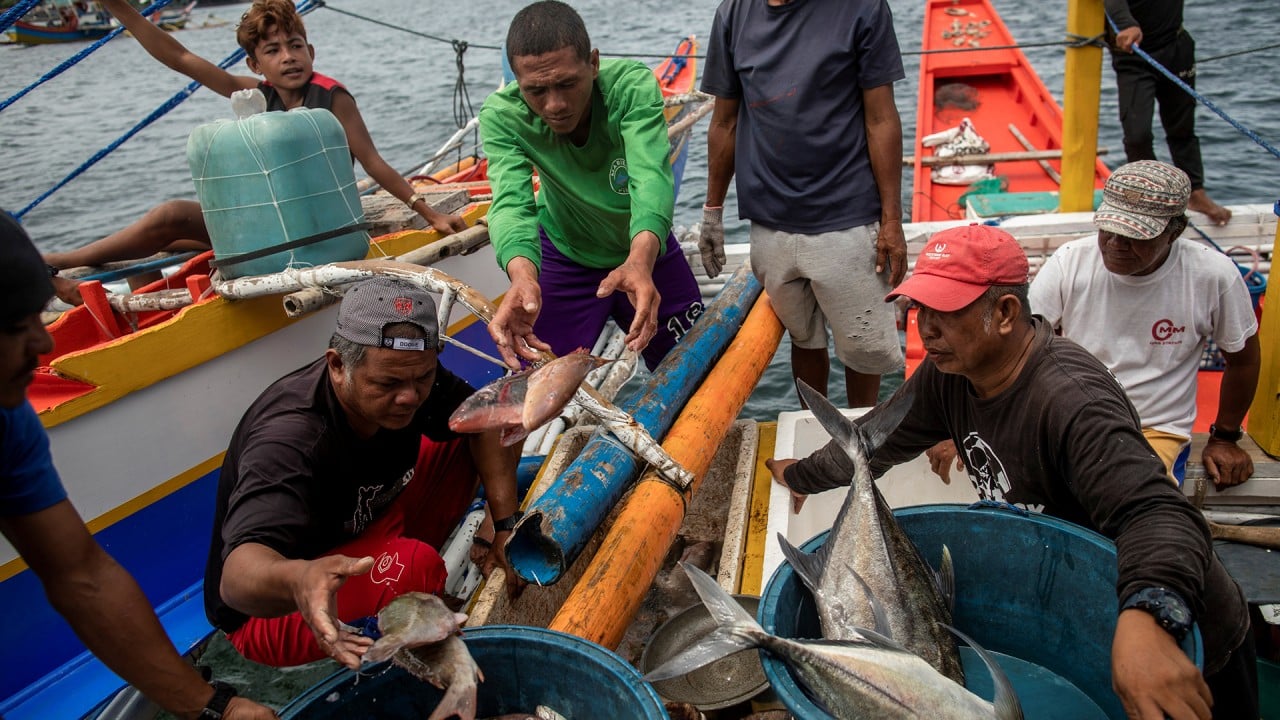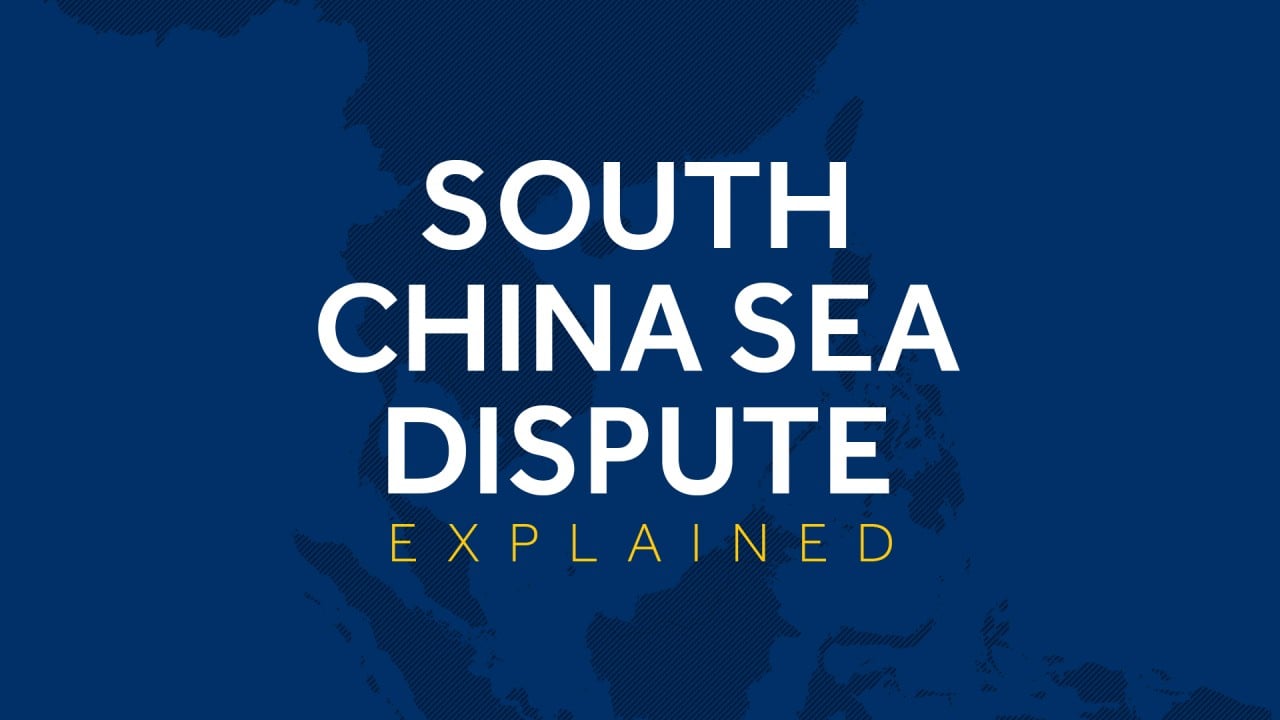
China to prioritise Southeast Asia with upgraded relations, development aid
- President Xi Jinping tells Asean summit that China is a good neighbour, as he pledges US$1.5 billion to help pandemic control and economic recovery
- Beijing’s ties with the region are complicated by South China Sea dispute and competing Indo-Pacific strategies of US and EU
China has raised the importance it places on Southeast Asia in its diplomacy, pledging to upgrade relations with the region to focus more on security cooperation and development funding.
The move was announced on Monday by Chinese President Xi Jinping, as major powers including China, the United States and the European Union vie to expand their influence in the region, a key component in their Indo-Pacific strategic tussle.

02:16
Philippine fishermen claim continued Chinese harassment on South China Sea
Beijing would also upgrade the free-trade zone with Asean that was established in 2011, and transfer more advanced technology to Asean nations, he said.
Without naming the US, Xi told a virtual China-Asean summit that China would never seek hegemony nor bully smaller countries.
“As distance tests a horse’s strength, time reveals a person’s heart,” Xi said. “China was, is and will always be Asean’s good neighbour, good friend and good partner. I want to stress that China will unswervingly make Asean the priority of its neighbouring diplomacy.”
Asean and China should jointly resist “various negative factors that pose threats to peace”, he said.
“China resolutely opposes hegemonism and power politics, and is willing to live in friendship with neighbouring countries to jointly maintain lasting peace in the region,” he said. “China will not bully smaller countries.”
Beijing has several categories to label its relations with other nations. The lowest is partnership, while the highest level is comprehensive strategic partnership of coordination for a new era – which is specific to its ties with Russia.
Mainland diplomatic observers said China-Asean cooperation previously had focused more on economic matters, but could be expanded to political, security, maritime and people-to-people exchanges through the upgrading of ties.
South China Sea: the dispute that could start a military conflict
Chen Xiangmiao, an associate researcher with the National Institute for South China Sea Studies, said China and Asean had yet to establish a formal defence minister dialogue mechanism, and the two sides could work towards it.
“Security cooperation between China and Asean has not been sufficient over the years,” Chen said. “There were some breakthroughs in 2018 when China and Asean held their first joint exercise, but there is still not a formal dialogue platform between their defence ministers.”
Chen said other cooperation could cover supply chains and infrastructure connectivity.
Tensions are running high between China and its Southeast Asian neighbours, which are concerned about growing Chinese military power. Last week, the Philippines protested when Chinese coastguard vessels blocked and sprayed a powerful stream of water at two Philippine boats that were carrying supplies to troops at a disputed shoal in the South China Sea.
The EU also unveiled its Indo-Pacific strategy in September, aimed at increasing its naval presence in the region through port calls and freedom of navigation exercises to “promote an open and rules-based regional security architecture”.
Xu Liping, an expert on Southeast Asia with the Chinese Academy of Social Sciences, said both China and the US were aware of Asean’s importance. The US saw the region’s potential role in countering Beijing’s rising influence, while China aimed to dissuade Asean nations from siding with the US, he said.
Asean last year overtook the EU as China’s largest trading partner, with trade volumes hitting US$732 billion.

03:23
The South China Sea dispute explained
“The region is important to both China and the US,” Xu said. “It is an important military and trade passage for the US.”
Chen said the US was aiming to use its military bases in Asean nations and apply diplomatic pressure on Beijing through Asean.
“The US hopes to make Asean its partner, to rival China,” he said.
Speaking at the Asean virtual summit on Monday, Singaporean Prime Minister Lee Hsien Loong said recent high-level exchanges between China and the US were encouraging for regional peace and stability.
“Asean and China should also continue working together to manage tensions in the South China Sea,” he said, adding that it was time for Asean nations and China to discuss restoring cross-border travel.
Malaysian Prime Minister Ismail Sabri Yaakob said all nations should remain committed to maintaining the South China Sea as a sea of peace, stability and trade.
“To this end, all parties should exercise self-restraint and avoid actions that may be deemed provocative, which could further complicate the situation and escalate tensions in the area,” he said.


